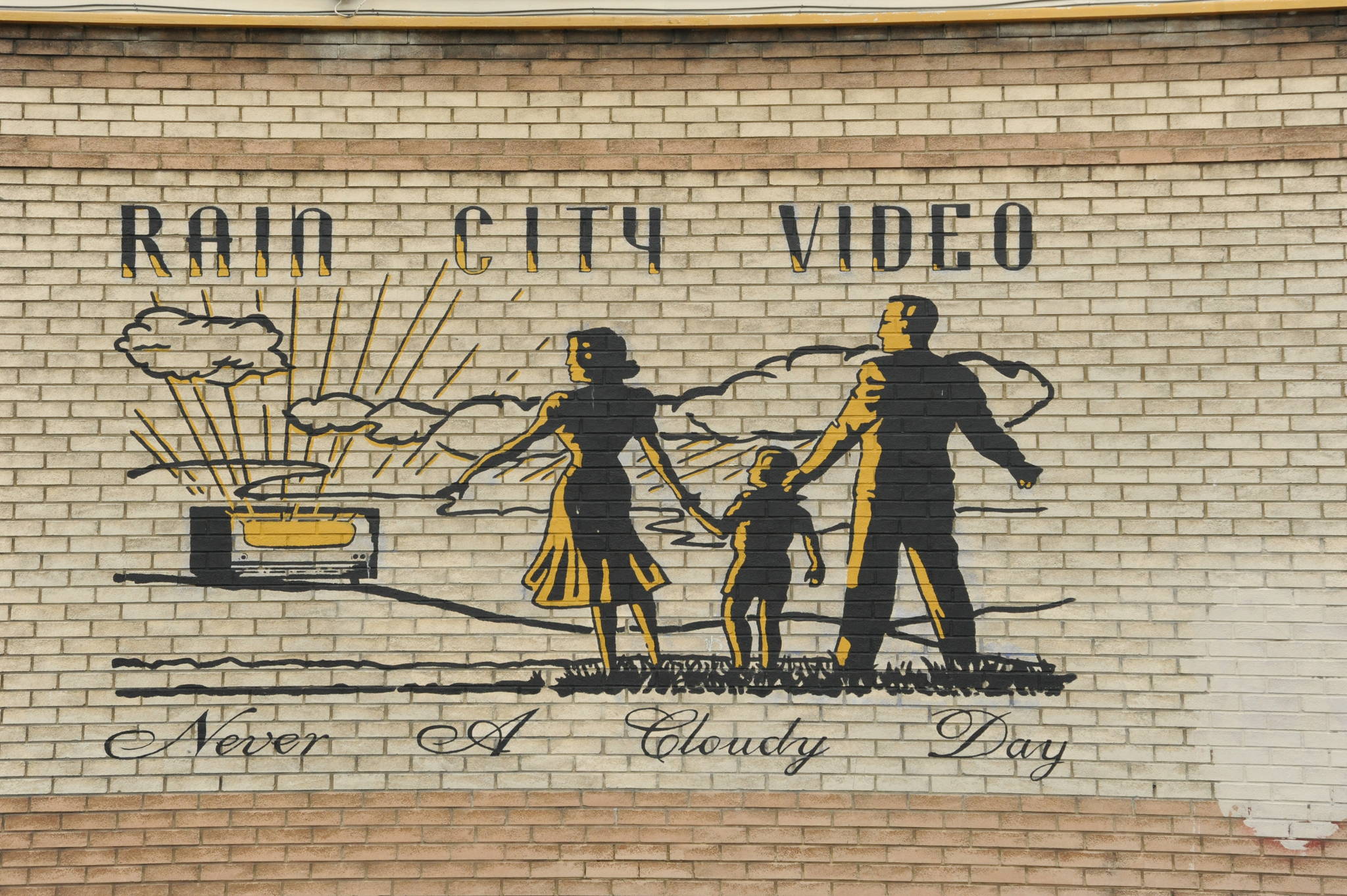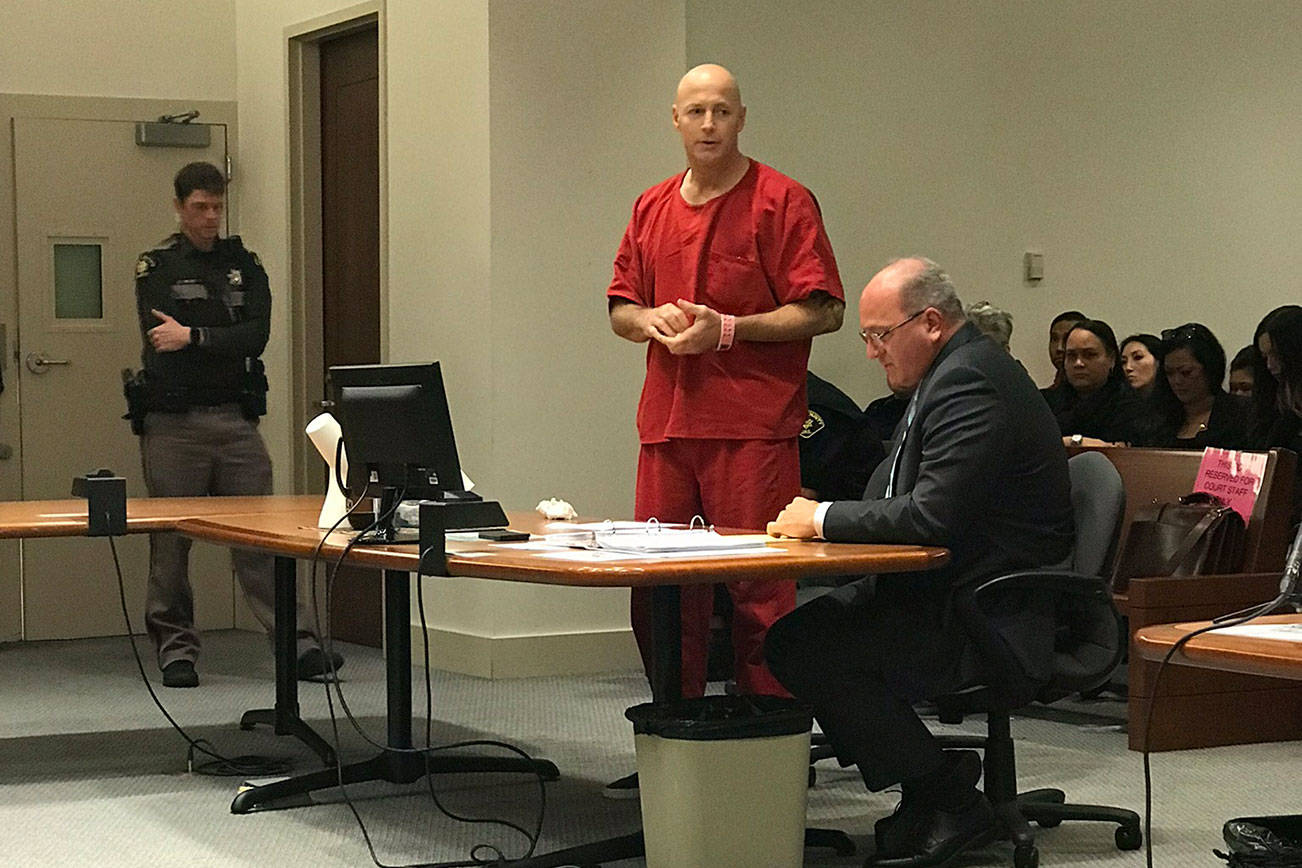After decades of servicing Seattle’s film buffs, Rain City Video on Sunset Hill is slated to close later this month, marking the death of yet another traditional video-rental store in the Netflix era. But the longtime owner, Mark Vrieling, says he is working to move his treasured inventory online.
Contacted over the phone by Seattle Weekly, Vrieling says he’s at the store with his 26-year-old daughter boxing up videos to be sold in a final mass sale of more than 10,000 titles of a total inventory of 38,000. The store stopped renting titles last week, but the closing sale is happening from now until April 28—the day the store will officially shut its doors for good. “We’ve got about 18,000 videos that we’re selling out of the store,” says Vrieling.
The story behind Rain City Video’s closure echoes the classic narrative of the decline of traditional video-rental stores in the face of competition from online streaming services like Netflix, Hulu, and Amazon Prime: the technological changes in film distribution have eaten away at Rain City Video’s customer base, and revenues haven’t kept pace with operating costs and Seattle rent hikes. “We wish we did not have to go but time marches on and the entertainment business has become an electronic distribution business,” reads the announcement of Rain City Video’s closure posted on its website.
“Rent has been going up and rentals have been going down,” says Vrieling. “Since summer we’ve been on the other side of break-even, so it was time to close. … I’m surprised that we’ve made it this long,” he added.
The West Ballard video store is one of three Vrieling has opened and operated over the past 29 years (the Sunset Hill location, the second of the three, opened 27 years ago). The other two locations shuttered in 2013 and 2012. Vrieling says the stores lasted so long because they had “one of the best [film] libraries in the country,” adding that their highly refined selection of classics, foreign films, and fringe documentaries kept local movie buffs coming back. “We [tried] to have a tight selection of what is the best,” he says.
But catering to a niche consumer market and adding additional types of products to bring in more revenue wasn’t enough to make Rain City Video pencil out in the long-term. “We tried a number of different things to keep it up; we have a good book selection and we have records, but nothing can make up for what video rental did in its heyday,” Vrieling says.
A quick survey shows three other video-rental stores still operating in Seattle: Video Isle in Fremont, Reckless Video in Roosevelt, and Rain City’s main competition for film buffs, Scarecrow Video in the U District—which was converted into a nonprofit several years ago after facing similar financial troubles, and which currently relies on dues from a membership base and donors to stay afloat.
“The streaming model [has] driven out the old brick-and-mortar model,” says Robert Horton, Sound Publishing film critic and Scarecrow board member. “These neighborhood places going out of business; it’s really sad.” Horton says the loss of physical video stores isn’t just a matter of nostalgia, but affects the way we consume information. “When physical media is taken away from us, [when] control over that object is given to somebody else, they’re streaming it from somewhere and they get to pick and choose what is available and how much to charge,” says Horton. “Certain kinds of documentaries that present the truth about certain subjects might vanish. The existence of physical media is really a bulwark against that.”
However, Vrieling isn’t done with the video-rental business just yet. He says he is working on a new online rental service called Cinefile, a project that will both preserve public access to Rain City’s collection but also allow movie buffs to add to it. Here’s the gist: Vrieling is currently working with a Silicon Valley engineer, Johann George, to develop a patented device that will enable him to transfer his remaining 20,000 titles to a digital, downloadable format. Copyright and licensing law prevents video-rental businesses from copying and renting DVDs without a “reproduction license” from a given film’s copyright holder. To get around this, the device Vrieling is working on will digitize DVDs while scrubbing the disks of the original video content.
Once digitized, which Vrieling says will take close to three months, the content will be hosted on a website—which will be “as fun to browse as [Rain City Video’s] was”—from which users can download and view films. While this may seem to fly in the face of copyright law, Vrieling says the video files will be encrypted so that they can be downloaded to and viewed on only one device at a time—thus, a user can’t download a film and give it to all his or her friends.
“Copyright laws prevent us from duplication,” a Cinefile press release quotes John Mitchell, Cinefile’s “co-founder” and “legal expert,” as saying. “Cinefile is simply changing the media substrate on which the work of art resides.” Also, “People couldn’t move it from their hard drive to another hard drive. We have strong copy protections.”
Vrieling says that films left over from Rain City Video’s inventory will be rented for the minimal cost of $1 per view. New releases bought directly from movie studios will be slightly more expensive—in the $3-to-$4-per-view range. Vrieling says the enterprise will do more than break even: “The content is already paid for, so it will be quite profitable.” He says his start-up needs around $100,000 to build the device, and will launch a Kickstarter at the end of April to raise funds.
Additionally, Vrieling hopes to add to his existing collection by essentially crowdsourcing hard-to-find and no-longer-in-production films from the dusty libraries of movie geeks: The start-up will digitize videos that consumers offer, giving the generous individual several free rentals and a portion of the revenue. “We want to be the library of Alexandria for video, and the best way to do that is to solicit from other people who are collecting in the country,” says Vrieling.
Vrieling and his partner investors in the start-up are framing the enterprise as a counterweight to the large online movie-streaming companies like Netflix that currently dominate the industry. Specifically, Cinefile aims to make available online the rare titles that only movie-buff stores like Rain City Video kept on the shelf and that industry heavyweights like Netflix spurn.
“Today, most services have migrated to streaming, opening the door for studios to negotiate for licensing on a per-view basis. What has that meant for streaming services? Choice is becoming a thing of the past. Netflix has cut back on non-exclusive theatrical releases and is doubling down on originals and exclusive content like House of Cards, which they own outright,” reads a Cinefile press release. “For better or worse, streaming services are becoming more like HBO and focusing on exclusivity, and less on inclusivity—abandoning the original vision of the digital revolution. This model differs from that of Netflix, who both produces its own content [and] buys bulk numbers of disks.”
jkelety@seattleweekly.com








